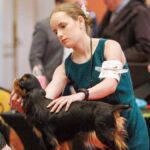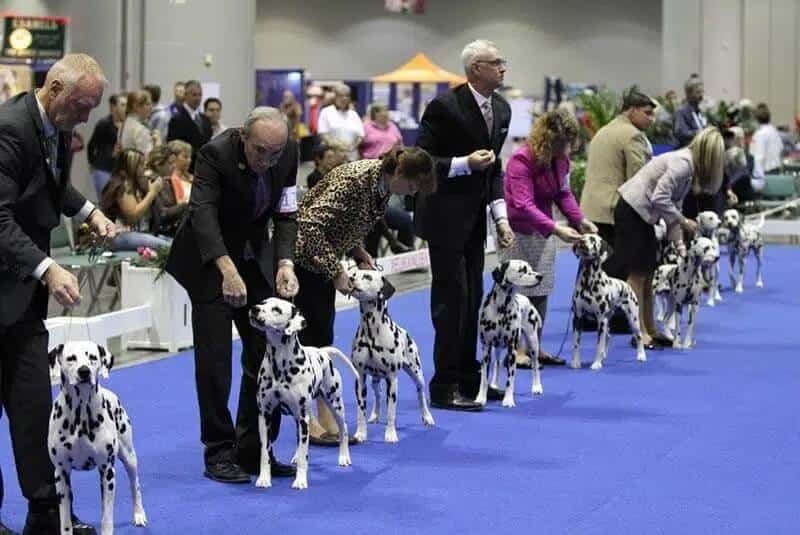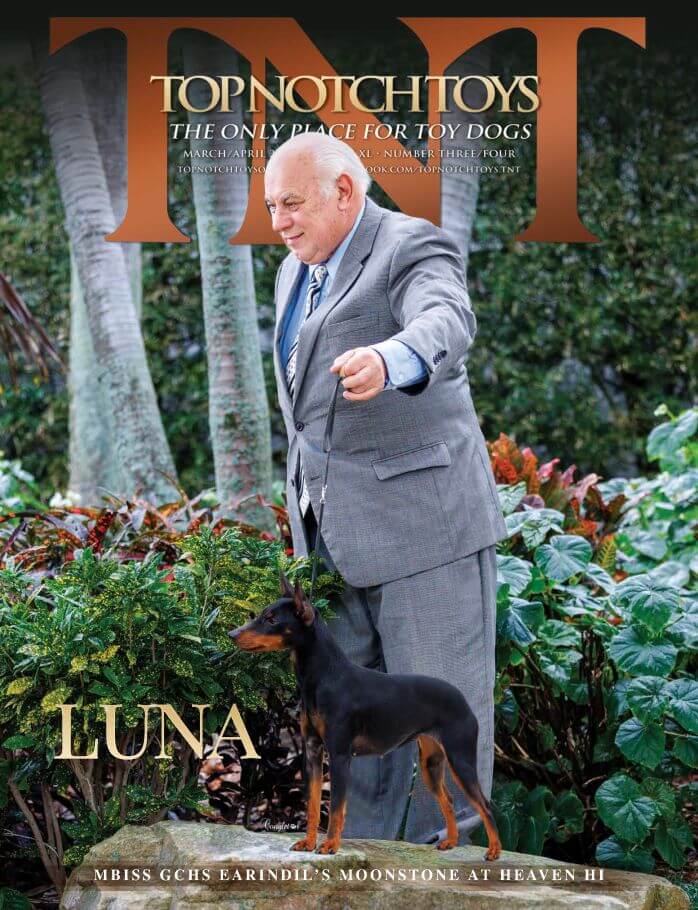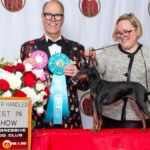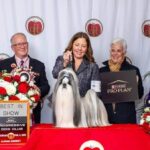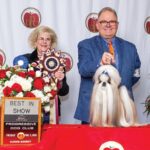We hear from many exhibitors and professional handlers at conformation shows that dog shows have changed. Social media are full of comments on this subject, and many of our long-term fellow exhibitors have confided that they are frustrated by the change. My family has shown for more than 60 years, and we concur: Dog shows have changed, indeed, but so has almost everything. What are the changes, what caused them, and how have they shaped the sport?
When we started out, a large majority of exhibitors were breeders, and professional handlers showed mostly in BOB competition. Rankings by dogs defeated were done by hand, published in magazines, and based on shows up to about two months earlier. Shows were smaller, with fewer entries, and there was only one show at each site. There were fewer judges, and some judges were so influential that you couldn’t get majors without them.
All of that changed as a result of the Internet. Now, show results are available online, usually within hours or, at most, a day. They are made available on magazine websites. Full-page advertising in all-breed magazines has increased dramatically, up to almost 1,000 such ads every month. Professional handlers are now ubiquitous in both the classes and BOB competition. There are also many more judges; the American Kennel Club licenses over 700 judges to judge at least one Group, and it has licensed about 10,000 for less than one Group.
Any change has consequences. Good outcomes include better grooming and presentation by individual exhibitors and professional handlers. Dogs are moved to show their best gait, and judges observing them are not distracted by awkward handling. Especially for coated breeds, grooming of most exhibits is better now and more consistent. Workshops at shows and online have contributed to the improvement. In a nutshell, presentation has become better.
There are other outcomes. A greater percentage of dogs is now shown by professional handlers. They must win to keep clients; a strong motivation to prepare and exhibit their dogs well. Handlers are in the ring more than other exhibitors. AKC’s approval of large multi-show clusters and clubs’ increasing tendency to schedule them has facilitated that. Weekday shows are part of a handler’s job, but require other exhibitors to take off from income-producing work or to take some of their limited vacation time. Moreover, professional handlers can show in a much larger region. Handlers also become “known faces” and may develop personal relationships with some judges.
Good judging that is knowledgeable of breed standards, and weighs the balance of merits and faults of exhibits, is key to the future of shows. It is gratifying to see judges who make placements disregarding the other end of the lead, national rankings, and advertisements. Even a few instances when this is not the case can hurt the image of (and respect for) all judges.
For example, one judge I observed recently had lengthy chats with handlers when they entered the ring, and these handlers then won their classes. At four successive shows with identical exhibits, a different dog went Best of Breed each day. These observations are superficial and may be meaningless, but they create the suspicion that judges may interpret the breed standards differently or that they place handlers rather than dogs.
The most common complaint that I hear from both individual exhibitors and professional handlers is that judging is not good, that judges are not accountable for what they do, and that dog shows have largely become “people shows.” These may be overstatements, but the bottom line is that exhibitors and professional handlers may have lost confidence in judging.
What can be done to restore it? Perhaps AKC could devise some mechanism to hold judges accountable, but how would this be done? Anything that I can think of, such as judges being asked at times to report explanations for their placements or being observed by “super-judges,” may not be practical and may have their own problems. What do you think? Do you have any suggestions? Please email your views to [email protected].
